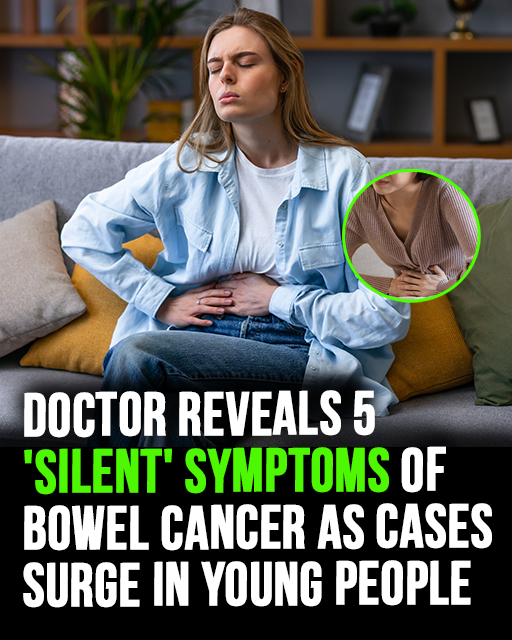There are 5 signs you need to know! 😮
A doctor has issued a crucial warning to adults worldwide about five symptoms that could indicate bowel cancer. While colon cancer typically affects older adults, it can occur at any age and is increasingly being seen in younger people. Early detection is vital, as catching the disease in its initial stages dramatically improves treatment outcomes.
Dr. Jack Ogden, from The Lagom Clinic in Bristol, UK, highlighted five “subtle” signs often overlooked by patients. These symptoms may seem minor or easy to dismiss, allowing the cancer to progress undiagnosed. “Awareness of these silent signs can save lives,” Dr. Ogden told the Daily Mail. “Paying attention to subtle changes and acting promptly is the best defense against colon cancer.”
**1. Iron-deficiency anemia:** Unexplained fatigue, pale skin, or shortness of breath can indicate low iron levels, which may be caused by slow internal bleeding from a tumor. Other symptoms include chest pain, heart palpitations, or dizziness.
**2. Changes in bowel movements:** Frequent constipation, diarrhea, or narrow stools can sometimes signal a blockage caused by a tumor. While minor variations are common, persistent or unusual changes warrant attention.
**3. Unexplained weight loss:** Losing weight without changing your diet or exercise habits could point to bowel cancer. Tumors can reduce appetite or interfere with nutrient absorption, leading to unexpected weight loss.
**4. Abdominal bloating and pain:** Persistent cramping, bloating, or feeling full quickly after eating may indicate a problem in the digestive system. Significant or ongoing changes should prompt a medical assessment.
**5. Blood in the stool:** Blood may appear dark or black if it has been in the digestive tract for a while, sometimes detectable only through a stool test. While bright red blood can be caused by hemorrhoids, darker tones can signal more serious internal bleeding.
Dr. Ogden emphasizes that paying attention to these often-overlooked signs and seeking timely medical advice can save lives. Awareness, early screening, and prompt action remain the best strategies for combating bowel cancer.






Post Comment